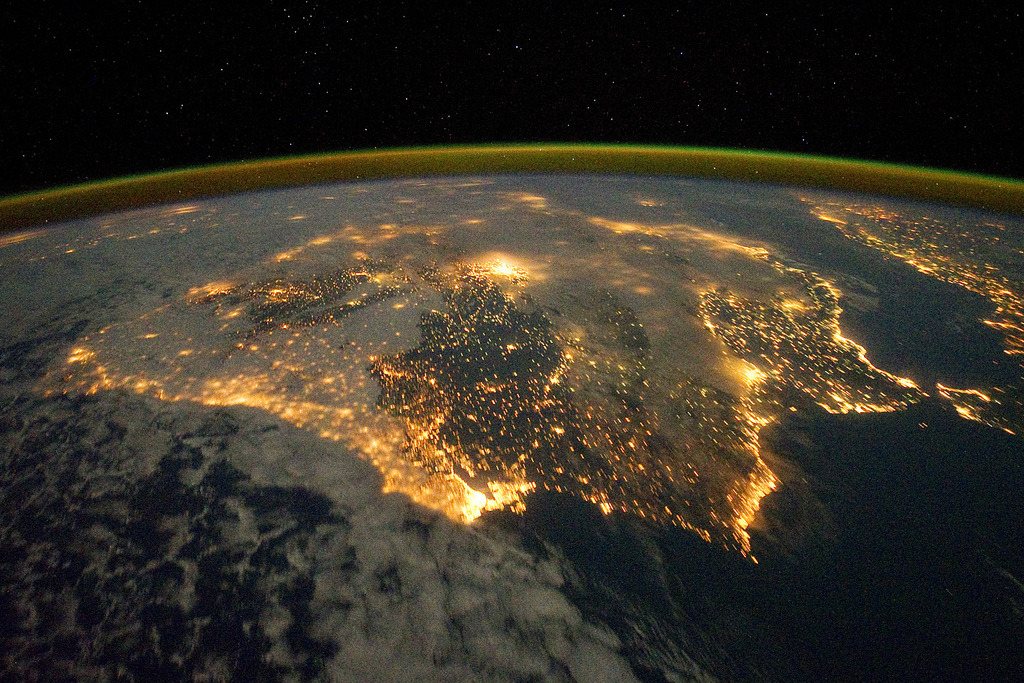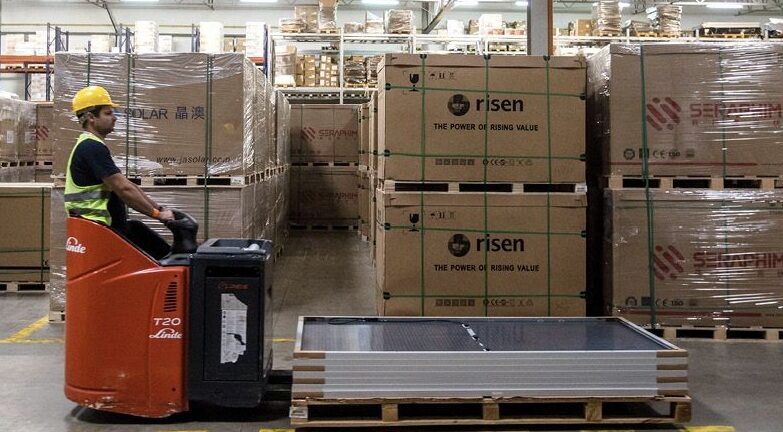Staff from London-based law firm Fieldfisher, in an article for pv magazine, today said negotiations between corporate clean energy buyers and renewables project owners have resumed over power purchase agreements (PPAs), particularly in the Netherlands, Spain, Portugal and the U.K. Now the dust is starting to settle after the initial Covid-19-related chill on PPA contracts, Fieldfisher staff said deals related to longer-term energy projects are unlikely to be notably affected but negotiations are taking place regarding more imminent power projects, as corporate energy off-takers are not keen to honor commitments to buy power they currently do not need. The situation could render energy storage more attractive if battery prices come down and energy regulators properly recognize the services such facilities can provide, according to Fieldfisher, and corporates previously wary of signing power deals with aggregators of multiple small renewables generators may be more open to the idea as it offers an opportunity to spread risk.
U.S.-owned, London-based analyst Wood Mackenzie has speculated solar developers in Europe previously prepared to operate unsubsidized power plants may seek the shelter of a return to subsidies amid fears future Covid-19 waves could further damage revenues. The knock-on effect could be less generation capacity being allocated from auctions as limited subsidy pots have to work harder. Negative energy prices in Germany and Italy have put further pressure on gas generation now that much of Europe’s coal fleet has already been decommissioned. Across the pond, long-standing commercial and industrial clean energy off-takers are expected to continue investment in the U.S. although sectors which are suffering, such as oil and gas firms, can be expected to reduce renewables spending to shore up their core balance sheets. In Asia, WoodMac said any retreat by global investors would leave space for raised Chinese infrastructure spending. In the Caribbean and Central America, low oil prices could delay the transition to renewables and natural gas and in Mexico the analyst said the decision of electric utility CFE not to apply its high consumption domestic rate for power during the lockdown removed a big incentive to install rooftop solar. That move is likely to further hit the rooftop market at a time when the peso-dollar exchange rate is already driving up system prices.
Bill payment holidays
Ukrainian legal firm Hillmont Partners has assessed the impacts of the Covid-19 crisis on renewable energy producers in its back yard and around the world for pv magazine. In Ukraine, clean energy producers have reportedly ignored dispatch orders issued by electricity transmission system operator NPC Ukrenergo as it tries to balance the system during steep falls in demand during the current crisis. Government measures enabling householders to delay the payment of their electric bills have hit the liquidity of the guaranteed buyer of power generated by subsidized clean energy facilities, with the amount owed to renewables generators reaching UAH4.7 billion ($173 million) this month. That pattern has been repeated outside Ukraine too, with Hillmont predicting cashflows for paying commitments such as renewables payments could dry up at electricity distribution system operators within 2-3 months. The legal firm called for policymakers to emulate their peers in nations including Poland and India by extending clean energy project completion deadlines linked to the provision of subsidies.
A call has been made to extend solar project deadlines connected to the Investment Tax Credit (ITC) available in the U.S. Although solar projects are eligible for Covid-19 federal assistance, ITC deadlines could negate the beneficial effects. The ITC is due to fall from 26% this year to 22% in 2021. Elsewhere, the California Energy Commission confirmed solar and energy storage installers are classed as essential critical infrastructure workers, as far as coronavirus-related stay-at-home orders are concerned.
Power demand
English analyst Cornwall Insight yesterday shone light on how the Irish are coping with the Covid-19 lockdown put in place until at least Tuesday – they’re having a lie-in. With average daily electricity demand down 20% – 23.4 GWh – from the first week of March to last week, demand is down 254 MW across the day, compared with the same period of last year, and peak power demand is down 4%, or 240 MW, by the same measure. Against that background the morning peak demand period, which has been most notably reduced, has also been pushed back two hours, with people either working from home or unemployed.
Meanwhile, Irish transmission system operator Eirgrid on Monday reminded renewable energy project developers they have until tomorrow to pre-qualify for the first round of the Renewable Electricity Support Scheme. The deadline for applications for the opening round of the nation’s first clean energy tender program was extended from April 2 until tomorrow because of the Covid-19 pandemic.
Technical advisory company PI Berlin is offering to conduct audits of Chinese factories which are producing personal protective equipment (PPE) to make sure it complies with EU regulations. The German company, whose Shanghai staff will carry out the factory visits, said it would offer the service for less than market rate and would donate the proceeds to organizations distributing medical supplies.
Impact
Chinese PV project developer Comtec Solar, which turned its back on manufacturing last year to focus on its downstream business, has said it expects the public health crisis to affect operations in the first half of this year. Comtec, which is prepared to listen for offers for its solar fabs in Shanghai and Haian, stated in the annual report for 2019: “The group expects its project developments and construction to potentially be impacted and this may, in turn, affect the group’s business performance in the first half of 2020.”
The Polish solar manufacturing industry is reportedly considering a joint offensive to claim domestic market share for their products at the expense of Chinese, Vietnamese and Italian imports disrupted by the coronavirus pandemic.
The Turkish government has postponed a planned 1 GW national solar tender for a second time, this time citing the Covid-19 pandemic. The 100-project, 39-province Renewable Energy Resources Area Project (Yeka) tender has been postponed until next year. It was originally envisaged as a three-project exercise in January 2019.
Warning
Global business interests lobby group the World Economic Forum has said the Covid-19 pandemic which has cost so many lives is merely a taster of what lies in store for the planet if climate change is not addressed. The corporate lobby group – which hosts the annual Davos conference in Switzerland – added the public health crisis offers the opportunity to rebuild a more sustainable, resilient world better placed to reduce the emissions which are fueling climate change. That message was echoed on Monday by more than 60 blue chip German businesses who have demanded post-Covid-19 stimulus packages should be linked to reducing emissions. The German government has thus far resisted calls to lock climate change conditions into the support policies it is planning to deal with the economic fallout of the pandemic.
New South Wales-based renewables investment fund Solar Bay has offered a financial lifeline to businesses in the Asia-Pacific region which own rooftop solar assets. The fund has an AU$350 million (US$223 million) war chest to purchase commercial and industrial systems which it will use to supply energy back to the original owner under long-term power supply contracts. Solar Bay said the energy costs for businesses could still be 20-40% lower than wholesale prices and the sale of rooftop systems could give businesses much-needed cash as the financial fallout from the coronavirus crisis sets in. Solar Bay expects to spend almost a third of its AU$350 million to purchase PV rooftops within six months.
A silver lining
Chinese energy storage manufacturer BYD says its engineers and those at German electronics company Kostal have overcome Covid-19 work disruption to make BYD’s Battery Box Premium product compatible with the latter’s Plenticore and Plenticore Plus products. BYD said “very well stocked warehouses around the world” will compensate for coronavirus-related shipment restrictions as demand for its products is expected to treble this quarter, compared with the same period of last year.
Silver prices will only fall 3% this year despite the impact the Covid-19 crisis will have on demand, according to the U.S.-based Silver Institute. Silver demand is forecast to slide 3% in the global PV industry, from 98.7 million ounces in 2019 to 96.1 million ounces this year.
Uptick
The boss of Utah-based energy storage system manufacturer Humless has insisted his business has seen a rise in demand since the onset of the Covid-19 pandemic in the U.S. Chief executive Glenn Jakins cast doubt on the findings of a survey undertaken by industry body the U.S. Energy Storage Association (ESA) this month which stated a quarter of storage companies expected to have to lay-off employees because of the public health crisis. Some 63% of the 101 respondents to the ESA survey said they expected revenue to fall this quarter, with 33% expecting falls of 20% or more and storage system manufacturers more pessimistic than developers and installers, according to the ESA. Customer delays and cancellations, equipment shortages and permitting hold-ups were cited as the chief problems companies expected to have to overcome. The ESA has appealed to Congress and the White House for support and claimed even companies with no immediate concerns about employment might lay-off workers if the situation does not improve rapidly after June.
India’s Ministry of New and Renewable Energy on Thursday announced this year’s Global Renewable Energy Investors’ Meet and expo event will be held digitally, because of the Covid-19 pandemic. The ministry is now seeking an IT partner to host the event, which is scheduled for October 15-17.
This content is protected by copyright and may not be reused. If you want to cooperate with us and would like to reuse some of our content, please contact: editors@pv-magazine.com.




1 comment
By submitting this form you agree to pv magazine using your data for the purposes of publishing your comment.
Your personal data will only be disclosed or otherwise transmitted to third parties for the purposes of spam filtering or if this is necessary for technical maintenance of the website. Any other transfer to third parties will not take place unless this is justified on the basis of applicable data protection regulations or if pv magazine is legally obliged to do so.
You may revoke this consent at any time with effect for the future, in which case your personal data will be deleted immediately. Otherwise, your data will be deleted if pv magazine has processed your request or the purpose of data storage is fulfilled.
Further information on data privacy can be found in our Data Protection Policy.